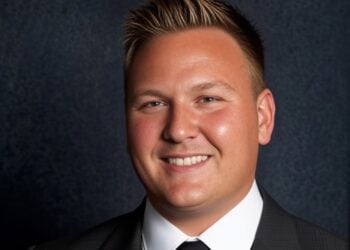In her plebe year as a West Point cadet, Nancy Grugle took an engineering psychology course that sparked an interest that would shape her career. “We learned how human-centered design of equipment, systems and environments directly affected the safety of soldiers in the field—for example, why 24/7 operations resulted in entire columns of infantry vehicles drifting off course into the desert during the Gulf War or why a pilot who was seemingly in control of their aircraft would fly their plane directly into a mountainside.”
From that class on, she dedicated her career to studying, researching and practicing in the field of human factors.
AALM: Tell us about your career and how it evolved over the years.
NG: I have been studying and working in the field of human factors for over 30 years, albeit in very different job roles. I researched the effects of sleep deprivation on human performance for my doctoral dissertation; I taught undergraduate and graduate-level human factors courses and researched distracted driving at Cleveland State University; I worked in industry designing user interfaces for the military and civilian world for a large defense contractor; and now I work as a full-time expert witness conducting forensic investigations related to human factors—primarily in transportation cases. I specialize in drowsy driving and distracted driving, but I also work on cases involving other types of transportation-related human factors issues as well as cases outside of the transportation area.
AALM: When did you first serve as an expert witness. What did you enjoy about the work?
NG: I became a full-time expert witness in 2013. It has been the most challenging and rewarding job I’ve had in my career. My most memorable cases involve some aspect of human behavior that seems, on the surface, contrary to common sense or involves a common misconception about human behavior. For example, cases that require me to explain to a jury that voice-texting or using Siri while driving is one of the most distracting and dangerous things a driver can do. Or, explaining that only getting 4-5 hours of sleep per night puts a driver at the same level of crash risk as having a BAC of .08 (the legal limit in all U.S. states).
AALM: How would you describe your approach to your work as an expert witness? How do you think this differentiates you from others in the field?
NG: My approach is to perform an objective analysis and to “tell it like it is” even if that means I can’t reach a favorable opinion. I think the biggest compliment that I can get from an attorney is that I am the expert witness they call when they want to know the truth about their case from a human factors perspective. Even though a case may have both favorable and unfavorable aspects to it, I do not equivocate.
AALM: How does your expertise address the issues of a case in ways other experts can’t?
NG: While many cases may involve specific human factors issues that are often addressed by other experts (e.g., an accident reconstructionist or trucking expert opining on perception-reaction time or driver actions), a human factors expert has years of specialized education, training and experience that allows us to address complex or nuanced issues involving human performance and behavior such as looming in high-speed rear-end collisions or sleep deprivation/fatigue and to address human behavior in response to a unique situation or environment such as a pre-dawn SWAT raid on a residence. When a case requires an in-depth evaluation or explanation of some aspect of human behavior, I recommend reaching out to a human factors expert.








